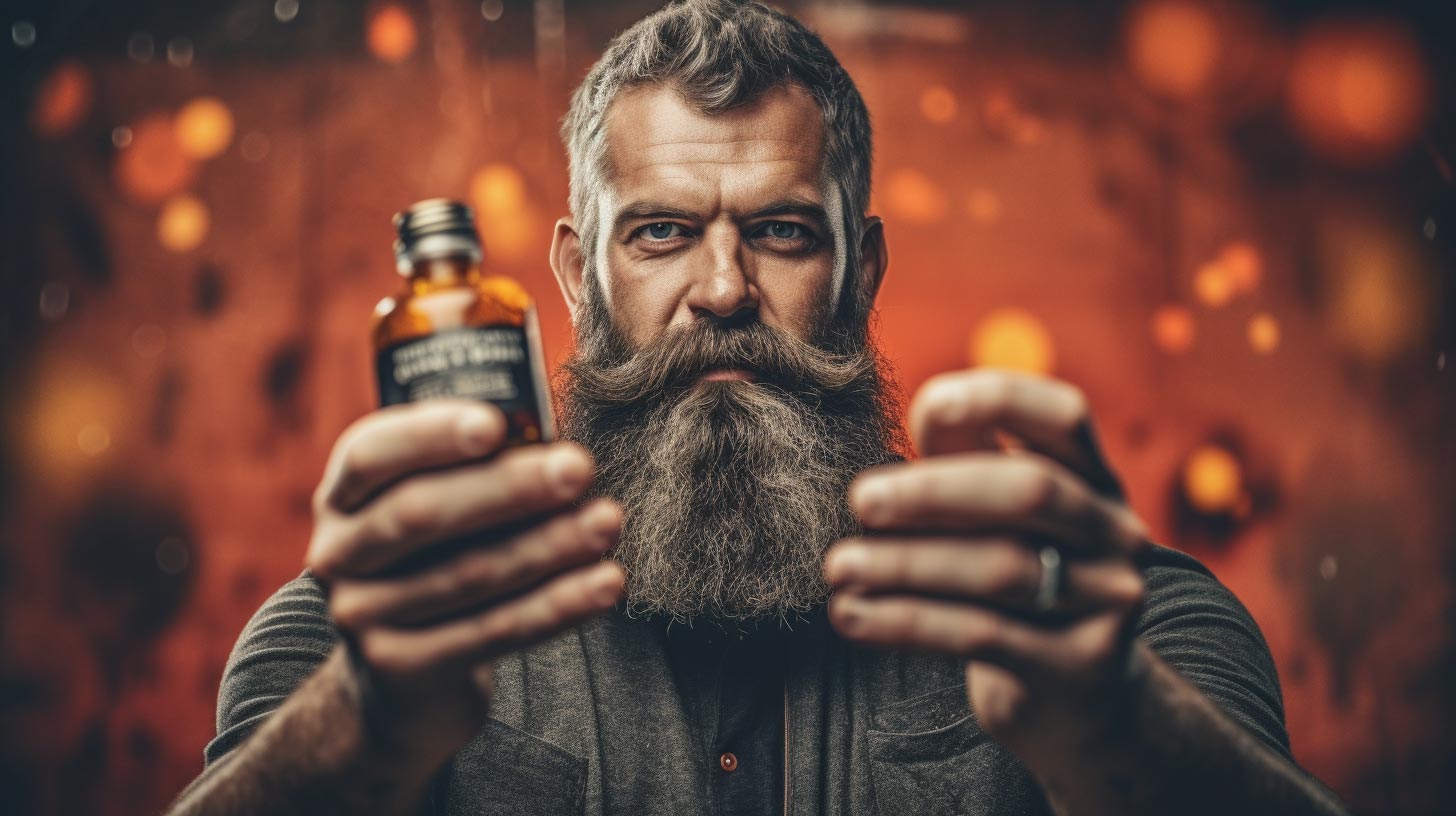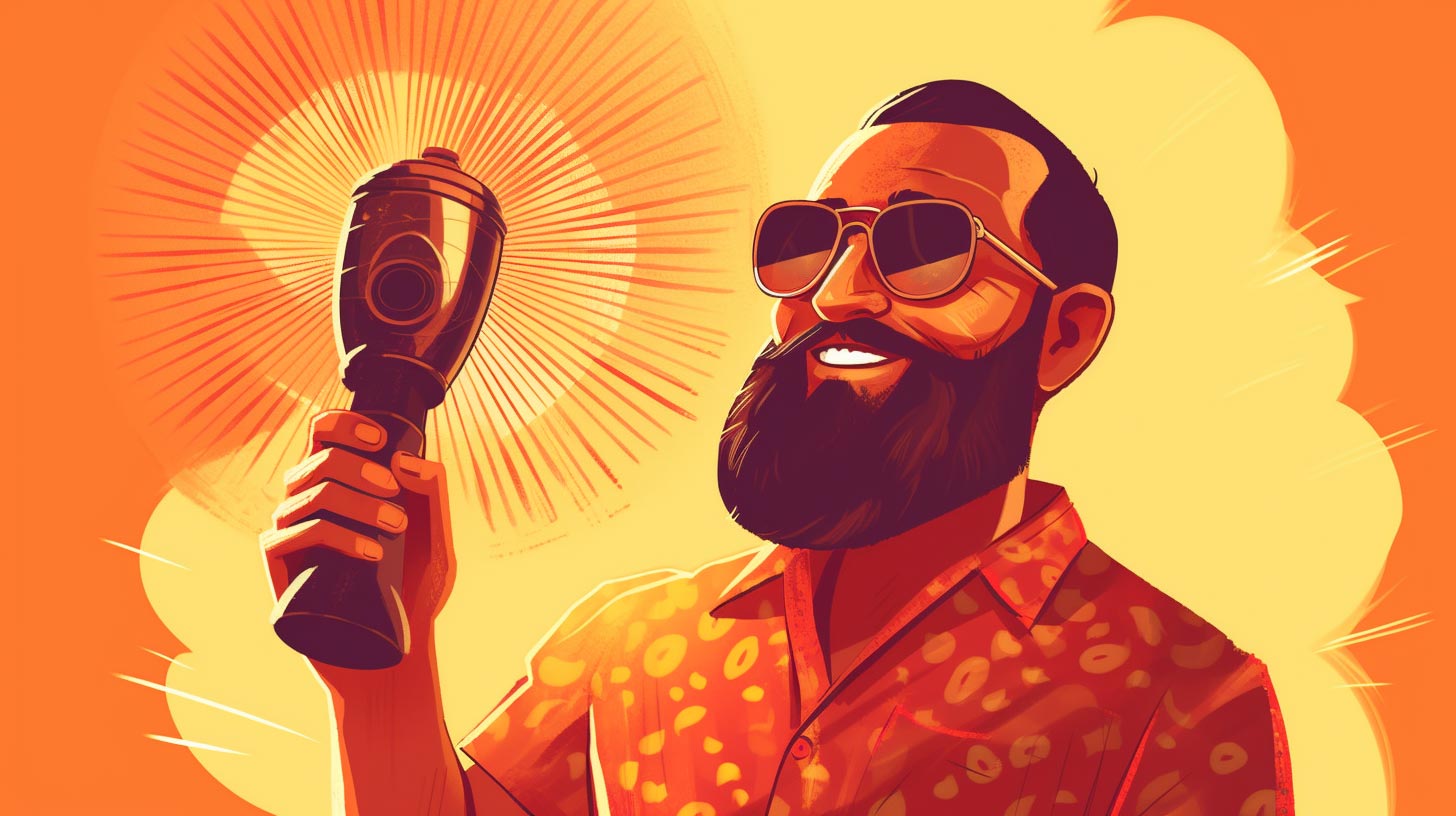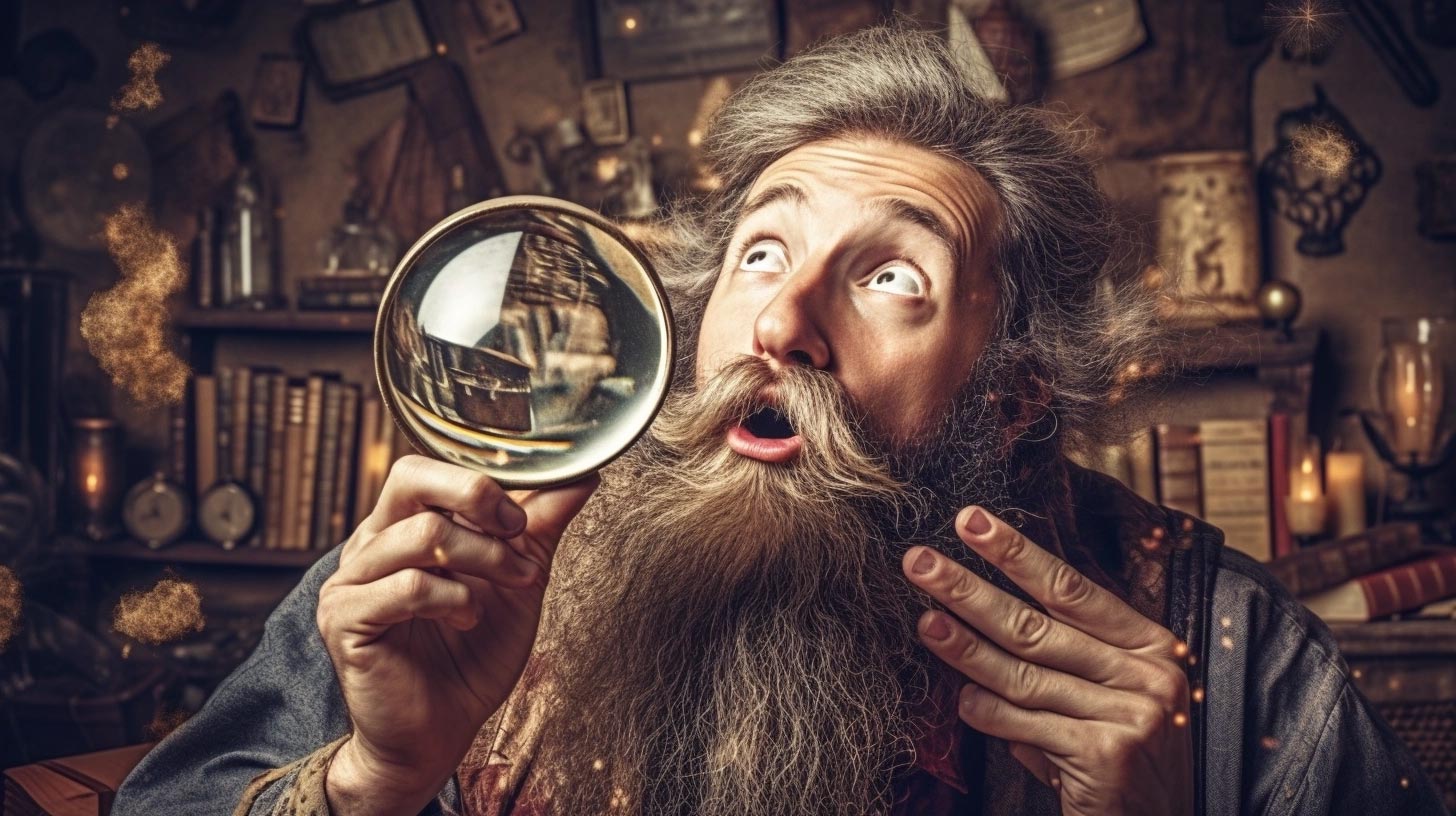You may have heard the phrase ‘beard power’ thrown around in conversations or on social media, but have you ever stopped to consider what it means? The philosophy of beards is a complex and fascinating topic that has been debated for centuries. From ancient civilizations to modern times, beards have been seen as a symbol of masculinity and power.
In this article, we will explore the significance and benefits of beards, their historical significance, and the controversies and criticisms surrounding them.
For many men, growing a beard is not just a fashion statement. It is a way to express their individuality, honor their heritage, and assert their masculinity. The philosophy of beards argues that a beard is not just hair on a man’s face, but a part of his identity. It represents strength, wisdom, and maturity.
However, not everyone agrees with this viewpoint. Some argue that beards are outdated and that a clean-shaven face is more professional or attractive. Others criticize the philosophy of beards for excluding women and promoting toxic masculinity.
In this article, we will examine these different perspectives and explore the nuances of the philosophy of beards.
Contents
- 1 Key Takeaways
- 2 Importance and Benefits
- 3 Historical Significance
- 4 Controversies and Criticisms
- 5 Frequently Asked Questions
- 5.1 How has the perception of beards changed over time and in different cultures?
- 5.2 Are there any health concerns related to growing a beard?
- 5.3 How do different beard styles affect a man’s appearance and perceived masculinity?
- 5.4 What are some common misconceptions about beards?
- 5.5 How does the popularity of beards in modern culture affect their symbolic significance?
- 6 Conclusion
Key Takeaways
- Beards are not just a fashion trend, but a timeless style that has always been a part of a man’s appearance and identity.
- Gowing believes that beards are a symbol of masculinity, courage, power, and honor, and that they have a positive effect on a man’s overall appearance and demeanor.
- Caring for a beard is a pleasant and satisfying process that is rooted in nature and the beauty of natural things.
- However, Gowing’s admiration for beards often leads to discrimination against shaved men, and his defense of beards can turn into an attack on the masculinity of non-bearded men and a criticism of women’s appearance.
Importance and Benefits
You’ll learn about the importance and benefits of beards, which have been a part of a man’s style and appearance for thousands of years, according to Thomas Gowing’s ‘Philosophy of the Beard’.
In modern society, beards have become a fashion statement that isn’t just limited to hipsters. From CEOs to athletes, beards have become an integral part of a man’s identity. However, it’s not just about the aesthetics.
Beards offer a range of benefits, such as acting as a natural sunscreen, reducing the risk of skin cancer, and retaining moisture on the skin. Grooming techniques are also an important factor when it comes to beards.
Caring for a beard is a pleasant and satisfying process that involves regular trimming, washing, and conditioning. This not only keeps the beard looking neat and tidy but also promotes healthy growth. Additionally, appropriate grooming practices can prevent skin irritation and beardruff.
It’s important to understand that beards are not just a trend or fad. They have been an important part of masculinity and power for thousands of years and will continue to be so in the future.
Historical Significance
As you delve deeper into the history of men’s grooming, you’ll discover that the absence of facial hair was once considered a sign of weakness and inferiority.
In ancient cultures, beards were seen as a symbol of power and virility. Ancient Egyptians, Greeks, and Romans all had their own unique styles of facial hair, with some even using beard dyes and oils to enhance their appearance.
The evolution of beard styles over time reflects not only changing fashion trends, but also shifting social norms and cultural values.
During the Middle Ages, for example, beards were often associated with religious devotion and piety, while in the 19th century, the rise of industrialization led to a clean-shaven, ‘civilized’ look.
Today, beards are once again in vogue, with many men embracing the rugged, masculine look that they offer.
Whether you view beards as a symbol of strength and power or simply as a trendy fashion statement, their historical significance is undeniable.
Controversies and Criticisms
If you’re interested in exploring the controversies and criticisms surrounding the current beard trend, it’s worth considering the arguments made by those who view beards as unhygienic or unprofessional.
Some people believe that beards are unclean and harbor bacteria, leading to a higher risk of infection. However, research shows that with proper care and maintenance, beards can actually be cleaner than a clean-shaven face. It’s important to recognize that the hygiene of a beard is dependent on the individual’s grooming habits and not solely on the presence of facial hair.
Another criticism of the beard trend is the societal pressure placed on men to conform to a certain standard of masculinity. Some argue that the glorification of beards leaves little room for men who cannot grow facial hair due to genetics or medical conditions. This misconception perpetuates the idea that facial hair is necessary for a man to be considered masculine, which can be damaging to those who do not fit this mold.
It’s important to recognize that masculinity is not defined by physical appearance and that every individual has the right to express themselves in their own unique way, with or without a beard.
Frequently Asked Questions
How has the perception of beards changed over time and in different cultures?
Throughout history, beards have held historical significance and cultural interpretations that have varied by region and time period. From religious symbolism to fashion trends, the perception of beards has been diverse and continues to evolve.
Growing a beard can cause skin irritation and requires proper hygiene to avoid infections. Regular washing and conditioning, trimming, and using beard oil can help maintain a healthy beard. Remember, a well-groomed beard is a happy beard!
How do different beard styles affect a man’s appearance and perceived masculinity?
Different beard styles can affect your appearance and perceived masculinity. Proper beard grooming and using beard products can enhance your look. However, it’s important to choose a style that suits your face shape and personal style.
What are some common misconceptions about beards?
You might think that beards are dirty, unprofessional, or make you look like a lumberjack. However, these are just beard stereotypes. Facial hair discrimination is real, but it’s time to recognize that beards can be stylish, clean, and professional.
How does the popularity of beards in modern culture affect their symbolic significance?
You may think the popularity of beards in modern culture dilutes their symbolic significance, but social media has actually increased interest in beard grooming. Despite trends, beards remain a symbol of masculinity and power.
Conclusion
Congratulations, you’ve reached the end of this article on the philosophy of beards. Through examining the importance and benefits of beards, exploring their historical significance, and delving into the controversies and criticisms surrounding them, we’ve gained a deeper understanding of why beards are more than just a fashion statement.
They’re a symbol of masculinity and power, representing heroism, honor, and individuality. Interestingly, a recent study by the University of Queensland found that beards may play a role in attracting potential mates. Women rated men with beards as more attractive than those without. This adds another layer to the complexity of the philosophy of beards, highlighting the potential social and evolutionary benefits that come with having a beard.
Overall, whether you choose to grow a beard or not, it’s clear that they hold a significant place in human history and culture. The philosophy of beards will continue to be a topic of discussion and debate, but one thing’s for sure: beards aren’t just a trend. They’re a symbol of power and masculinity that have stood the test of time.




